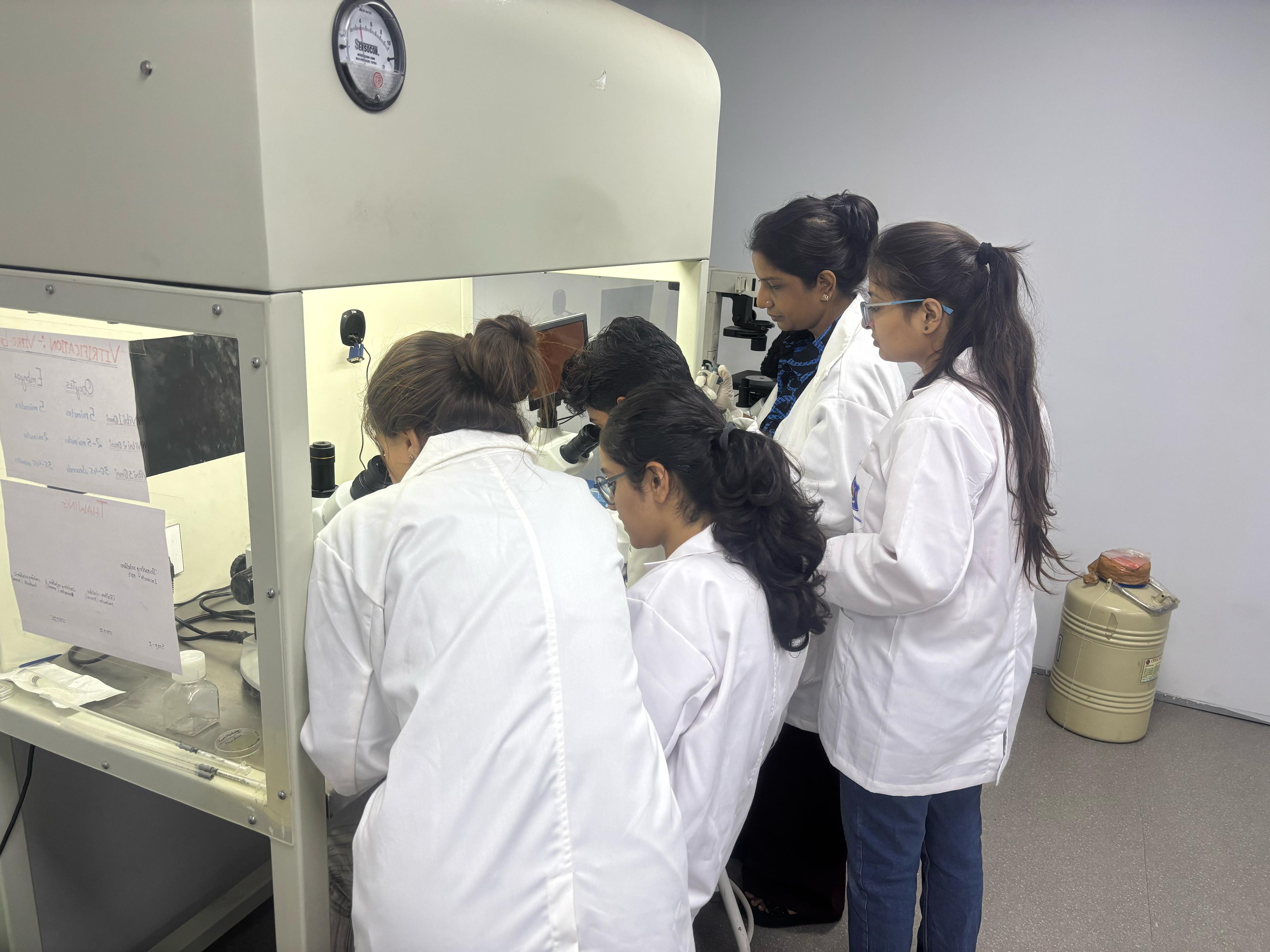
The Importance of Teamwork in an IVF Laboratory
When people hear about IVF (In Vitro Fertilization), they usually think of big machines and difficult medical treatments. That’s true, but there’s one more important thing that many people don’t notice: teamwork. IVF works best when many trained people work together. It’s not just one doctor or one person doing everything. In this blog, we’ll discuss why teamwork is important in an IVF lab and how it benefits couples to have a baby.
What Happens in an IVF Lab?
An IVF lab is a place where eggs, sperm, and embryos are handled very carefully. The primary aim is to assist individuals experiencing difficulties conceiving. Every step in IVF needs to be done correctly and at the right time. These steps include taking out eggs, getting the sperm ready, joining them together, growing the embryos, and then putting the best one back into the woman’s uterus.
Each of these tasks must be done very carefully and usually within a certain time window. No single person can do all of this alone. It requires a well-trained team.
Who Makes Up the IVF Team?
An IVF team includes several key members, each with a specific role:
-
Fertility Doctors (IVF Specialists): They plan and monitor the entire treatment cycle and decide the best approach for each patient.
-
Clinical Embryologists: These are the scientists who handle the eggs, sperm, and embryos in the lab. They perform the actual fertilization, monitor embryo development, and select the best ones for transfer.
-
Nurses: They provide care and support to patients, assist during procedures, and help manage patient information.
-
Lab Technicians: They help set up the lab equipment, prepare culture media, and assist embryologists.
-
Counselors or Coordinators: They help patients cope with the emotional stress of fertility treatments and keep communication smooth between the patient and the medical team.
Each team member brings something important to the table. But the real success happens when they work together.
Why Teamwork is Crucial in an IVF Lab
1. Timing is Everything
IVF needs to be done at the right time. Each step, like taking out the eggs, fertilizing them with sperm, and letting the embryos grow, has to happen without delay. If anything is late or goes wrong, it can affect the result. That’s why everyone on the team needs to stay in touch and work together. For example, the embryologist should be ready in the lab as soon as the eggs are collected. This kind of careful timing is only possible when the whole team works closely.
2. Accuracy and Safety
Working in an IVF lab requires care. Each sample must be labeled properly, and each procedure must be done with full attention. Even a small mistake can affect the patient’s chances. When team members double-check each other's work and follow set protocols together, the risk of error is reduced. It’s not just about doing your job well, but also helping others do theirs correctly.
3. Shared Knowledge and Skills
No one knows everything. Sometimes, a rare case or a new method comes up. In these moments, it's helpful when the team talks and learns together. Doctors, embryologists, and nurses can share what they know to find the best way to help the patient. When everyone learns as a team, the whole lab becomes better.
4. Supporting Patients
Fertility treatments can be stressful and emotional for patients. They need not just medical care but also emotional support. A caring word from the nurse, clear communication from the doctor, and timely updates from the lab can help reduce patient anxiety. When the whole team works together to care for the patient’s emotional and physical needs, it creates a more positive experience.
5. Emotional Support for Each Other
Working in an IVF lab can be stressful, especially when results don’t go as planned. Team members often rely on each other for emotional support. A friendly chat, a helping hand, or a word of encouragement can make a big difference. This support helps the team stay motivated and focused.
Real-Life Example of Teamwork in IVF
Let’s imagine a couple comes in for egg retrieval. The nurse prepares the patient, the doctor performs the procedure, and the embryologist waits in the lab to receive the eggs. Within minutes, the eggs are placed in a special solution, and sperm is added for fertilization. Over the next few days, the embryologist watches the embryos grow. Then, the best embryo is selected and transferred. Throughout this process, each team member has a role, and they all rely on each other to make it work.
If even one person misses a step or delays action, it can affect the outcome. That’s why IVF success is never a single job; it’s a team achievement.
Read More: Common Techniques Used in Embryology Labs: A Beginner’s Guide
Final Thoughts
Teamwork in an IVF lab is not just about dividing tasks. It’s about trust, communication, shared goals, and mutual support. Each team member’s role is important, but it is the connection between them that leads to success.
When patients come to a fertility clinic, they are not just placing their hopes in one doctor or one lab technician. They are trusting a whole team to help them create life. And it is only through strong teamwork that the IVF lab can turn that trust into results.
In the end, it is not just science or technology that creates life in an IVF lab; it is people, working together with care, focus, and heart.
Content Created By:

CyberBizz Technologies
Team - Content Curator


